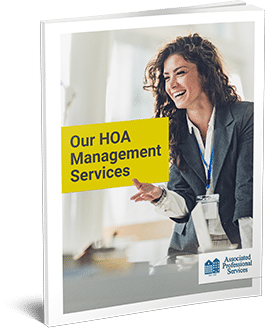As the number of homeowners associations (HOAs) continues to rise, so does the complexity of managing these communities....
What is an HOA Audit? Why Is it Important?

An audit is a complete study of the financial statements of the organization or, in this case, the HOA. Just about every business does an annual audit of its financial statements to comply with various requirements. Audits are complete, objective, and impartial evaluations of the organization’s finances. Here’s a quick breakdown at what an HOA audit is, why it’s important, and how it differs from an HOA review.
What is an HOA Audit?
An HOA audit is a comprehensive study of an association’s financial reports that results in an independent and objective evaluation of the financial reporting process being used. Financial audits are an important way to give managers and regulators the assurance that your financial statements are as accurate and as complete as they can be.
Many state laws require HOAs to do annual audits; but even in states where a yearly audit is not required, many associations plan for an annual audit anyway. It makes financial sense to have a financial audit prepared at least once a year.
What is the Difference Between an Audit and a Review?
These two sound similar, but they’re very different tools. An HOA financial review is a review of the financial records or reports of the HOA. The HOA will seek the help of a certified public accountant (CPA) to do the checking and make sure all records are accurate.
The financial audit requires more work from the CPA to analyze the HOA’s current financial situation. It’s not just about checking the reports – the CPA has to verify all the information on those reports. This includes calling debtors to see how much people owe the community association. The CPA will also call creditors to confirm how much the association owes.
How Should an HOA Prepare for an Audit?
Typically, an independent CPA goes through the documents that an HOA presents. These documents will undergo a detailed and rigorous inspection, so they need to be in order. They will go through the detailed minutes of the meeting between the HOA and a contractor to make sure all the arrangements are correct.
To help minimize the cost of a third-party audit, it helps to be prepared well ahead of time. The HOA board should make sure that their documents are compiled and well organized. They should also be available in time for the CPA to work with them.
Here’s a quick breakdown of what a CPA checks in the hoa auditing process:
Bank statements (including deposit slips, canceled checks, etc.)
- Invoices
- Board meeting minutes
- Major contracts
- Investments
- Insurance coverage
- Budget (current and next year)
- Receivables
- Reserve schedule
- 1099s
- Engineering studies
If you’re looking for an experienced HOA management company to help you manage an HOA and prepare for an upcoming HOA audit, APS Management can help. Take a look at our HOA management services or contact us for a consultation.




